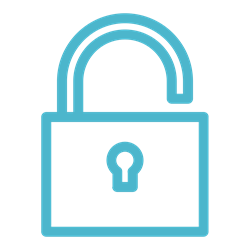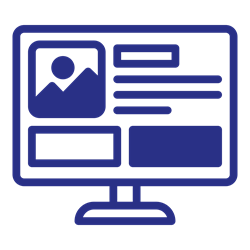EPI-WIKI
Tabs
Open Educational Resources (OER)

Why use and produce Open Educational Resources in the context of Higher Education?
What are Open Educational Resources?
"Open Educational Resources (OER) are teaching, learning and research materials in any medium – digital or otherwise – that reside in the public domain or have been released under an open license that permits no-cost access, use, adaptation and redistribution by others with no or limited restrictions. OER form part of ‘Open Solutions’, alongside Free and Open Source software (FOSS), Open Access (OA), Open Data (OD) and crowdsourcing platforms" (UNESCO).
What are the Benefits of Open Educational Resources ?
OER offer benefits for both higher education institutions and the respective stakeholder groups:
- Higher education institutions benefit from an increase in the quality of teaching and increased visibility. In addition, the strategic use of OER can mean a more efficient use of resources, as material created by staff during working hours is re-used.
- Teachers benefit from publishing and using OER mainly because of their participation in the relevant community. They do not have to develop every single worksheet themselves, and at the same time they can distinguish themselves as experts in certain fields and make their contributions to learning and teaching visible and citeable on their CV, similar to common practice for contributions in science. Teachers benefit from publishing and using OER mainly because of their participation in the relevant community. They do not have to develop every single worksheet themselves, and at the same time they can distinguish themselves as experts in certain fields. For the sake of gaining public awareness, OER opens up teaching as an additional field alongside research.
- In addition, students can be motivated to create material directly from courses, which in turn can be published under a free licence. This is one of the reasons why OER are considered a catalyst for modern teaching and learning arrangements.
OER in EPICUR
In alignment with the views of the European Commission towards Open Education, EPICUR is promoting collaborative teaching practice which includes producing, sharing and using course materials available as Open Educational Resources. The elaboration of practices for digitalisation of OER sharing and the creation of an Open Educational Resources infrastructure and service are being planned.

Learning Platforms and Digital Tools

Digital Teaching Competences
Related Wiki pages
These Wiki pages might also be interesting for you:
Further hints & OER
To delve deeper into the topic, take a look at these resources:
- What is open education? https://joint-research-centre.ec.europa.eu/what-open-education_en
- OER - an Overview of Initiatives Worldwide: https://www.bildungsserver.de/Open-Educational-Resources-OER-an-Overview-of-Initiatives-Worldwide-6998_eng.html
- https://www.unesco.org/en/communication-information/open-solutions/open-educational-resources
Back to > DESIGN> How to Design Digital Learning & Teaching > Facilitating Digital Learning & Teaching
Last edited: 21. Oct 2022, 10:50, Hutz-Nierhoff, Dorthe [dh1076@rz.uni-freiburg.de]